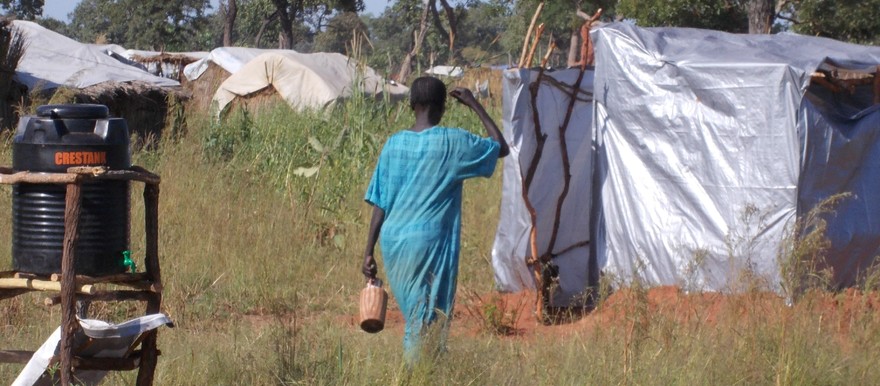The health of Nuba Mountains refugees at Yida Camp has improved owing to change in the quality of food and major sanitation efforts, according to dozens of interviews with Radio Tamazuj.
With the recent harvest, Yida has seen an influx of vegetables and legumes planted by refugees during the autumn period. The harvest is not expected to last through the next hunger season but it has temporarily provided more variety and quantity of food in the sprawling camp of more than 60,000.
Additionally, improvements in environmental health have come through extensive work by MSF-France. The organization built latrines all over the camp especially in areas where there are communal residences like hostels, social centers, and in the public streets. It also carried out a health education campaign.
Water points providing drinkable borehole water have helped to reduce cases of diarrhea and in turn reduced the mortality rate remarkably. It is said that deaths have fallen from ten daily to one death per day.
However, poor sanitation still persists in some parts of the camp because health messaging did not reach newly arrived refugees. The camp continues to grow as the situation in many parts of Nuba Mountains remains poor or deteriorates even further.
Photo by Radio Tamazuj: A bathroom at Yida Camp, South Sudan, 15 October 2012




